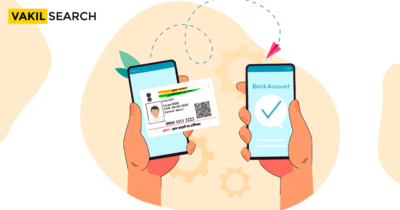Read this blog to understand why MSMEs do not register on Udyam despite the several government schemes.
MSME Registration
MSME registration – The World Bank publishes an index report called the Ease of Doing Business. It is an aggregation of several characteristics that characterize the ease of doing business in a country.
This is calculated by adding the distance to the frontier scores of various economies. The distance to frontier score takes as its criteria “regulatory best practices for doing business” and compares economies against it.
For each indicator that forms a part of the statistic “Ease of doing business,” a distance to frontier score is computed, and all the scores are aggregated. The aggregated score becomes the Ease of Doing Business index. These are the indicators by which the distance to the frontier is calculated, and they include construction registration, permits, getting credit, tax payment mechanisms, etc.
The Total Number of MSMEs and the Number of Registered MSMEs
In the year 2021-22 and in the survey, it is reported that the Udyam portal has registered MSMEs of more than 66 lakhs (95% are micro-enterprises, and 0.5 are medium-sized businesses).
Udyam Registration, also called MSME Registration, is a government registration for MSMEs, providing them with a unique identification number and a recognition certificate to certify them as (remove “a”) micro/small/medium enterprises.
Why have lakhs of MSMEs not been registered on the Udyam portal despite government schemes?
According to analysts, now there are lakhs of firms in the MSME sector, which is regarded as the backbone of the Indian economy, that may not desire the benefits granted by the government to Udyam-registered MSMEs. The Ministry of MSME arrived at a conclusion based on the available facts.
According to the MSME Ministry’s 2020–21 annual report, a total of 21,96,902 businesses filed for Entrepreneurs’ Memorandum (EM-II) between 2007 and 2015. Since September 2015, when the new online registration platform called Udyog Aadhaar Memorandum (UAM) was introduced, 1,02,32,451 (1.02 crore) registrations were submitted until June 30, 2020, when the new portal, Udyam Registration, overtook it. Otherwise, according to the National Sample Survey (NSS) 73rd round, performed by the National Sample Survey Office from 2015 to 2016, India has 6.33 crore unincorporated MSMEs.
Comments by MSME Ministry
In the comment, the government said that Aadhaar cards and PAN cards are necessary for registering MSMEs through their online Udyam portal. Applicants do not need to provide details of the assets and turnover of firms as they are collected automatically from government databases. “
“The process of registration for MSMEs can be done online; it is in digital form and paperless; it contains self-declaration.” No proof or documents are required to register a micro, small, or medium firm.
Aside from that, the study highlighted some of the other steps undertaken to support and grow MSMEs. The AtmaNirbhar Bharat package’s revision to the definition of MSMEs, which took effect on July 1, 2020, introduced composite investment and annual turnover criteria and exact limits for the manufacturing and services sectors.
The updated definition of MSMEs in the survey said that it would facilitate the growth and expansion of these enterprises. It discussed how the resulting economies of scale could boost productivity without depriving MSMEs of government benefits such as market support, export promotion, preferential procurement in the public sector, and incentives through the Micro Small Enterprises-Cluster Development Programme (MSE-CDP), and the Prime Minister Employment Generation Programme (PMEGP).
The Economic Survey also highlighted the Champions Portal as an ICT-based technology system for making the smaller units large by supporting and handholding them.
The survey drew attention to the fact that micro, small, and medium enterprises contribute significantly to the economic and social development of the country by fostering entrepreneurship and generating employment opportunities. The study noted the importance of MSMEs by stating that the percentage of MSME GVA in total GVA (current prices) for 2019–20 was 33.08 percent.
A Few Significant Features
Some of the significant features of the portal include information dissemination; onboarding of nationalised banks; private/regional rural banks; state financial corporations; and central government ministries/departments to resolve grievances in a fast-track manner; programme wise mapping of officials of the Ministry for fast track responses to grievances; and integration with various portals such as MSME Samadhaan, Udyam Registration, CPGRAM, etc.
The overall benefits of registering on the Udyam portal also included freedom from renewal of registration; any number of activities, including manufacturing or services, could be added to one registration; and MSMEs could register themselves on Government eMarketplace (GeM) and also simultaneously onboard the TReDS platform. Registration was also meant to assist MSMEs by using government programs such as the Credit Guarantee Scheme, Public Procurement Policy, etc. MSMEs can register on the platform for free, except for their Permanent Account Number and Aadhaar information.
There must be a lot of new MSME businesses that haven’t registered on the portal since the MSME definition was revised. Those who did not register on the Udyam portal might not be considered MSMEs henceforth and would not be eligible for MSME benefits. On the other hand, MSMEs haven’t reaped the benefits of government subsidies. It is not easy to get loans for MSMEs. It is difficult for multiple MSMEs to get collateral-free loans. Those not registered on the portal do not get government assistance through public procurement. Furthermore, MSMEs have been hesitant to share information about their investment and turnover through the portal.
Conclusion
We don’t believe MSMEs have given up on the benefits of enrolling in the portal. They are given special treatment under government initiatives. Furthermore, existing MSMEs have not been given enough time to register on the Udyam portal: https://udyamregistration.gov.in/Government-India/Ministry-MSME-registration.htm. With multiple government schemes available, it is possible that MSMEs will not find it beneficial to register on the portal during the COVID period. MSMEs have generally found it advantageous. The government should do data mining to determine why such MSMEs have not registered on the new platform.










